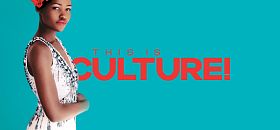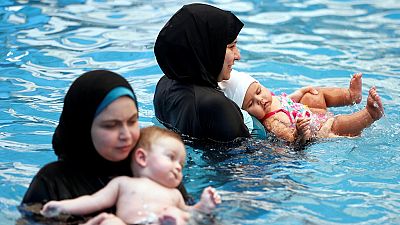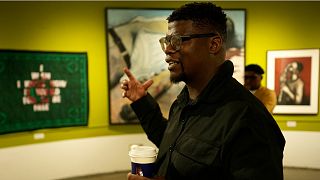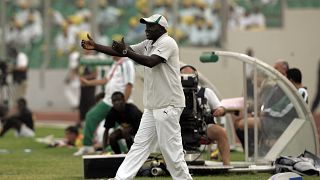Egypt
In Egypt’s capital Cairo, parents arrive with their babies for novel classes in swimming.
The classes are aimed to promote physical education for babies while teaching parents how to handle their children in water.
This initiative was started in July by instructor Mohamed Abdelmaksoud who spoke about other benefits of the program.
“If we hold the babies’ arms using the wrong method he or she might develop a chronic health condition which might cause the baby to suffer for the rest of his or her life. Our training also helps remove any of the physical side-effects the babies might experience shortly after birth.”
Training can begin for babies as young as two months old, who are initially put into a swimming pool to familiarise them with water. The exercises help improve overall fitness and quality of sleep.
Speaking after taking her child through the day’s lesson, Heba Helal said: “Honestly, it has helped tone his muscles. At the beginning his body was very stiff and his legs were always close to his torso, but now he has no trouble stretching his legs and he is no longer afraid of the water.
“At the beginning, when we first took him swimming, before we started attending this course, he would constantly cry until we would take him out of the pool.”
Another parent, Ahmed Halil shared his views: “I feel reassured because I know that she has only completed the initial phase. I’m still required to keep attending for an extended and more frequent period.
“But now if God forbid she fell into the water, she can hold her breath underwater for around 6 or 7 seconds and she can roughly navigate,” he added.
According to experts baby swimming is an exciting, enriching experience for everyone involved. Not only does it teach vital life skills, but it also enhances the way babies and toddlers learn other skills, too.
REUTERS














01:37
"Not good enough" - Rio Ferdinand slams UK government for lack of action on racism
01:15
Africa: About 51 million lives saved through immunization programme - WHO
01:46
Usain Bolt hails Jude Bellingham's impact at Real Madrid
Go to video
South Africa ; Gauteng Health raises concerns about rising food poisoning incidents
00:54
Football: Haller ruled out of Tuesday's Champions League
01:27
Disadvantaged children in Rwanda take up the sport of fencing